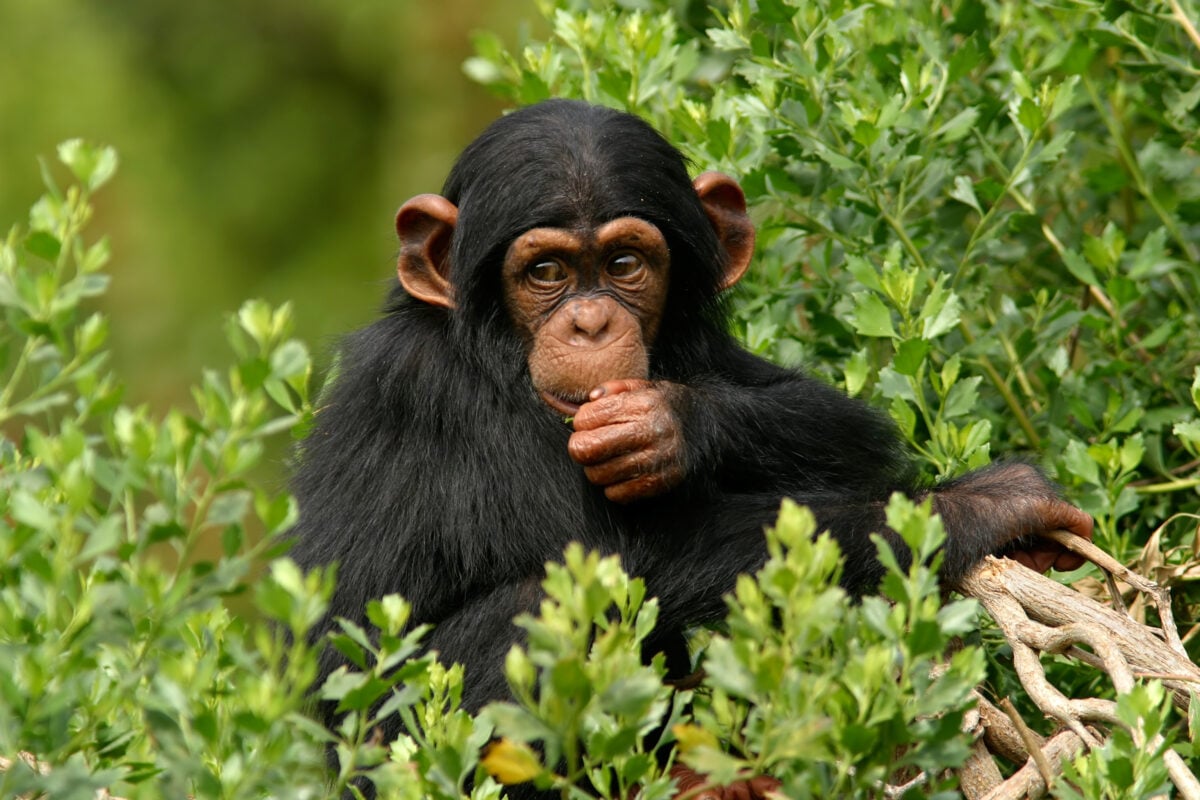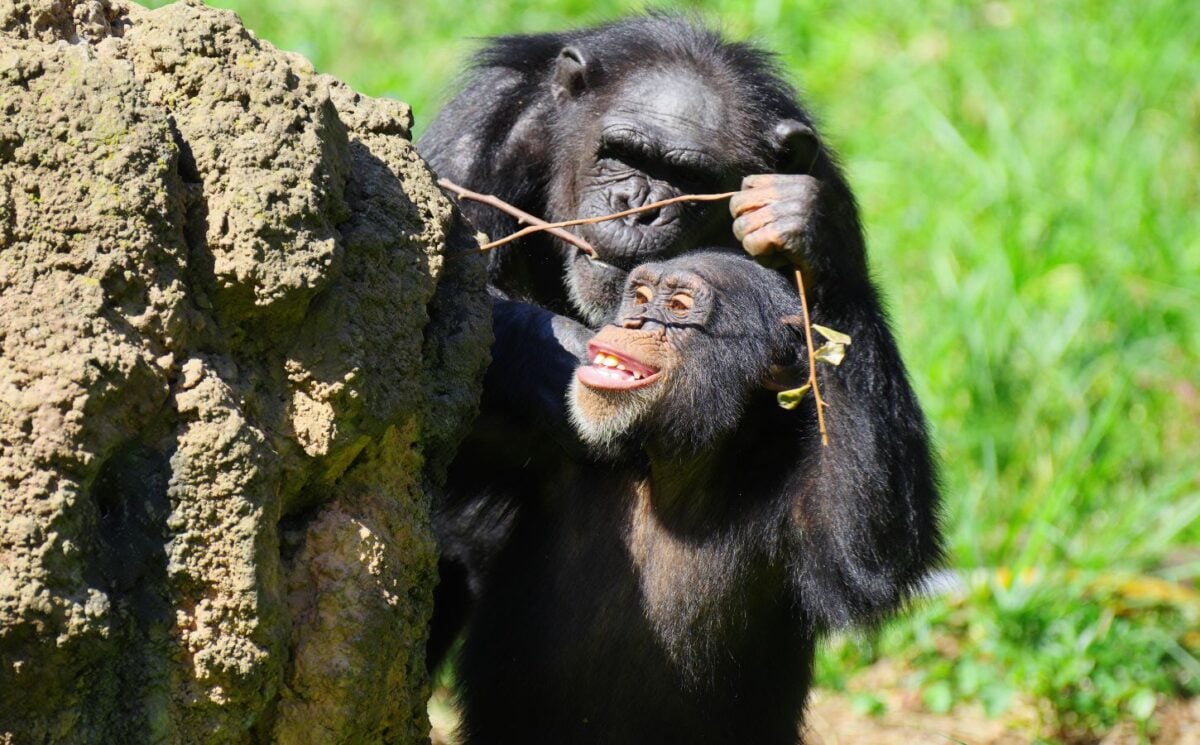Chimpanzees have been observed appearing to self-medicate with plants known to have healing properties.
Read more: Vegetarian Society Letter From 1933 Describes Ox Roast As ‘Grave Offense’
According to scientists in Uganda, chimpanzees purposely eat plants that have pain relieving and antibacterial properties when they are injured or unwell.
A study published in PLOS One looked at two communities of wild chimpanzees in Budongo Central Forest Reserve. Researchers working on the study made note of the plants that chimpanzees actively sought out in the forests that they do not usually eat, such as tree bark or fruit skin. Subsequent tests found that most of these plants had healing properties.
“We can’t test everything in these forests for their medicinal properties,” said The University of Oxford’s Dr Elodie Freymann, who was the lead researcher, in a statement. “So why not test the plants that we have this information about – plants the chimps are seeking out?”
Read more: Canada Bans Open-Net Pen Salmon Farming
Healing plants

A number of plants produce compounds that possess healing properties, the study notes. It has always been known that chimps consume healing plants, but this is thought to be the first piece of research that finds that they seek it out when they need it.
In one key example of this, the researchers noted that a male chimpanzee with an injured hand sought out some fern leaves. Such leaves may reduce pain and swelling. Another chimpanzee, who had a parasitic infection, consumed bark from the cat-thorn tree. This was unusual behavior, as the animals had not been observed consuming this before. Testing, again, found that this bark was both antimicrobial and anti-inflammatory.
“To study wild chimpanzee self-medication you have to act like a detective—gathering multidisciplinary evidence to piece together a case,” said De Freymann. “After spending months in the field collecting behavioral clues that led us to specific plant species, it was thrilling to analyze the pharmacological results and discover that many of these plants exhibited high levels of bioactivity.”
This isn’t the first time such a discovery has been made in non-human animals. Earlier this month, scientists observed an orangutan appearing to treat a wound with a liana climbing vine, which is known to have medicinal properties. The first-of-its-kind observation was described as “possibly innovative behavior.”
Read more: The UK Government Is Facing Legal Action Over Lobsters – Here’s Why






